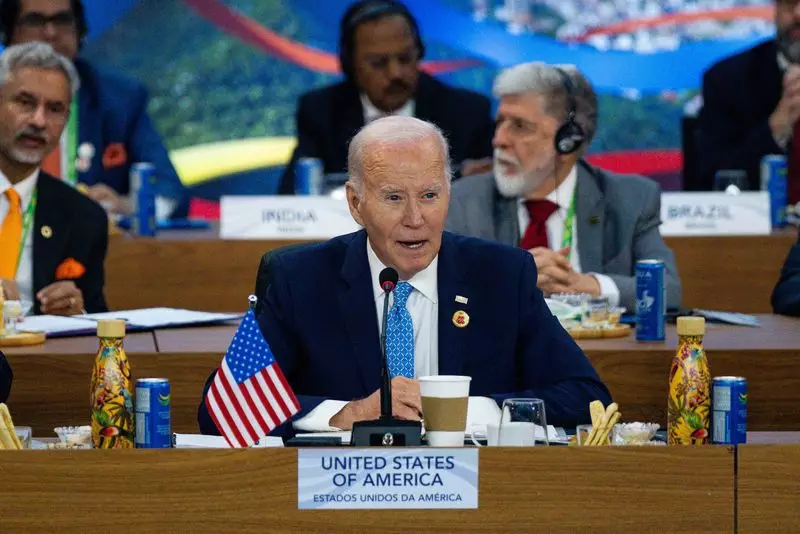In a significant twist on global assistance rhetoric, U.S. President Joe Biden has pledged a record $4 billion to the International Development Association (IDA) of the World Bank, designated for the world’s most impoverished nations. The announcement, made during a discreet session at the Group of 20 (G20) summit in Rio de Janeiro, signals a notable shift in the U.S. approach to international aid, especially at a time when rising global challenges demand an escalated response.
With this promise, the Biden administration has surpassed its previous commitment of $3.5 billion made earlier, thus marking the contribution as the largest in the history of the IDA. Such a commitment underscores a deliberate intent not only to provide financial support but also to reshape the narrative surrounding U.S. foreign aid, showcasing a willingness to invest heavily in alleviating global poverty. This commitment is particularly crucial as developing countries are contending with issues like escalating debt, climate-related disasters, and ongoing conflicts.
Despite the optimism surrounding Biden’s announcement, there looms a veil of uncertainty shaped by domestic politics in the U.S. President-elect Donald Trump’s administration, noted for its critical stance on foreign aid, raises questions about the actualization of these pledged funds. Historical patterns indicate that future congressional appropriations for foreign aid under a new administration may lean towards significant cuts, specifically within the context of fiscal efficiency initiatives advocated by Trump and influential business figures like Elon Musk.
The IDA fund is vital for providing essential grants and low-interest loans to nations grappling with severe socio-economic challenges, primarily across Africa and parts of Asia. The urgency for increased funding is further amplified by the approaching pledging conference on December 6, which will attempt to secure a replenishing target that exceeds the previous $93 billion goal. World Bank President Ajay Banga’s hopes for a monumental $120 billion pledge hinge on robust commitment increases from member countries, highlighting the critical nature of international solidarity in combating poverty.
Moreover, Biden’s planned bilateral clean energy partnership with Brazilian President Luiz Inacio Lula da Silva epitomizes the administration’s strategy to intertwine financial assistance with collaborative ventures aimed at tackling climate change. This approach reflects an evolving understanding of global interconnectedness, underscoring that addressing economic disparities is intrinsically linked to ecological sustainability.
As the world grapples with unprecedented challenges, Biden’s $4 billion commitment to the IDA not only stands as an emblem of American leadership in global development but also emphasizes the critical need for collective action. The coming months will be pivotal in determining whether this pledge will translate into actionable resources that can profoundly impact the lives of those in the world’s poorest nations. The focus will now shift to Congress and international partners to ensure that this ambitious vision of global support becomes a tangible reality.

